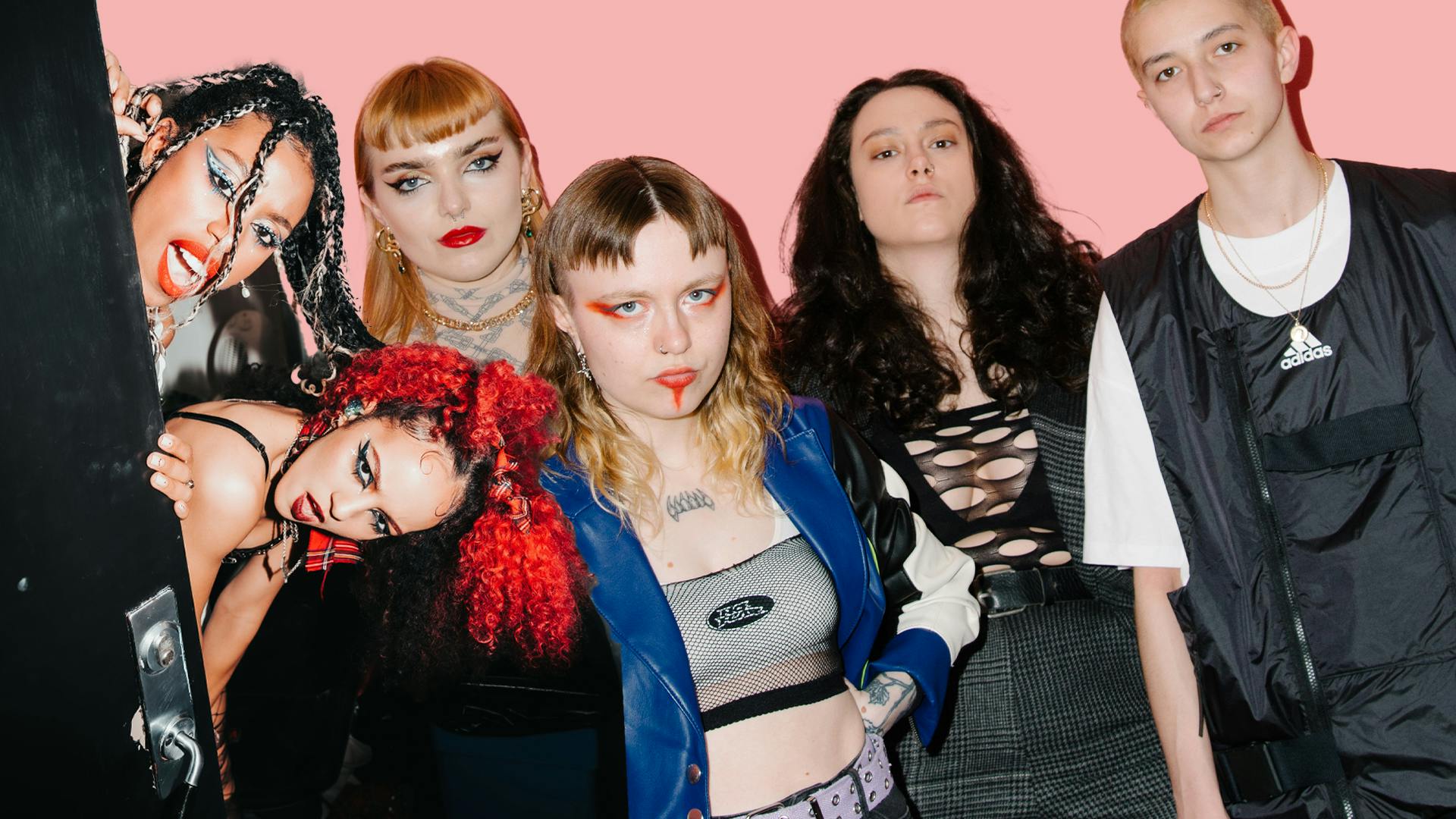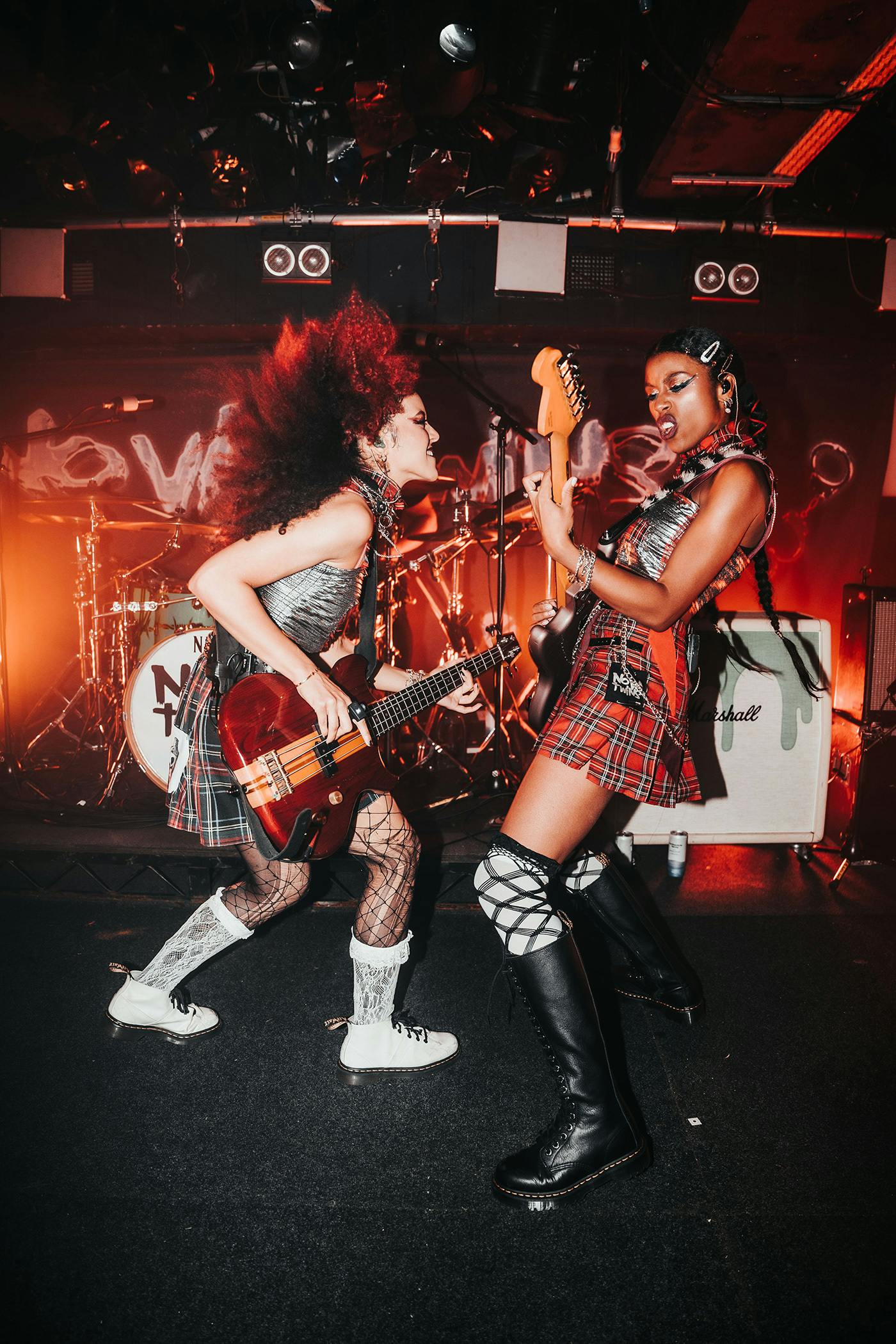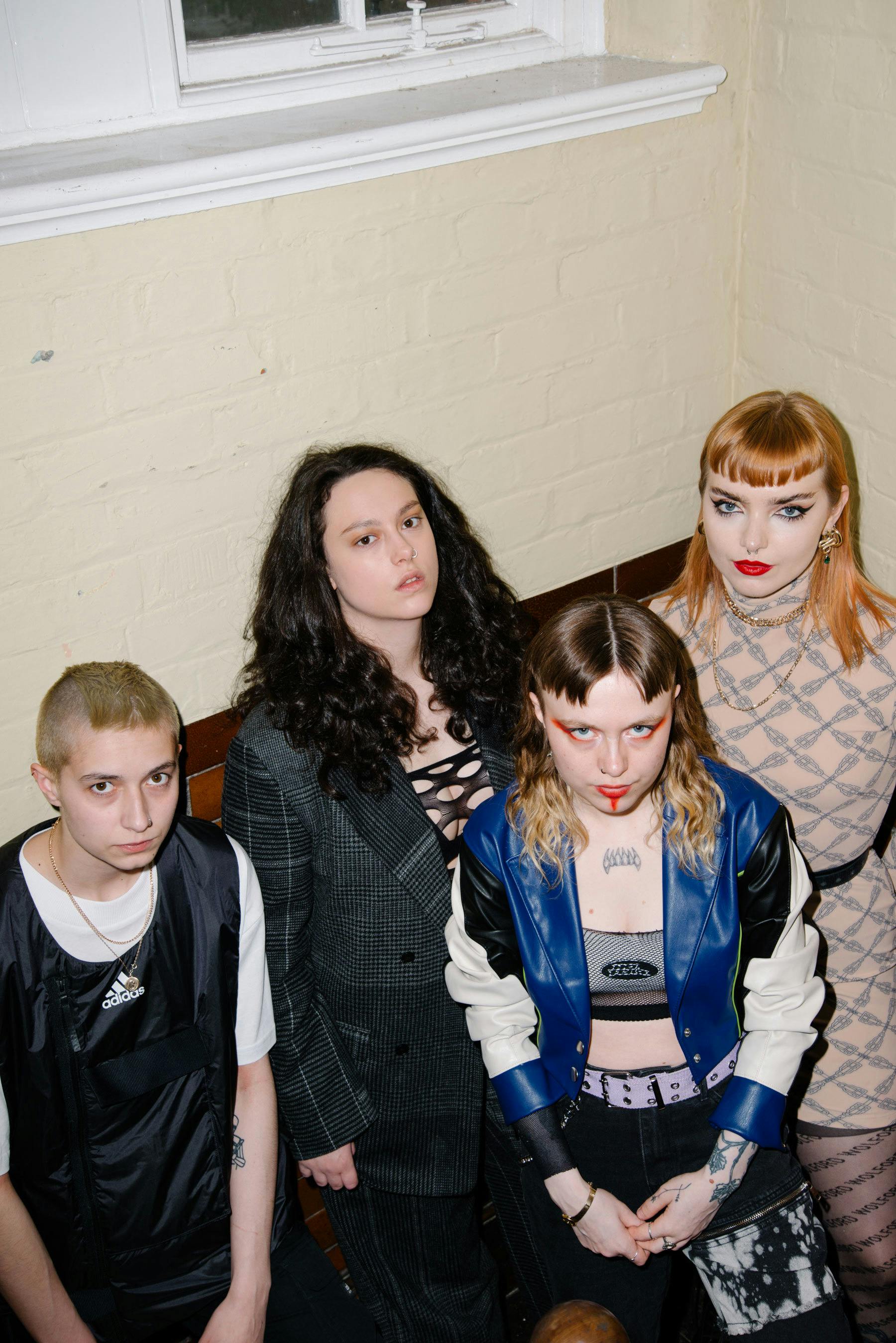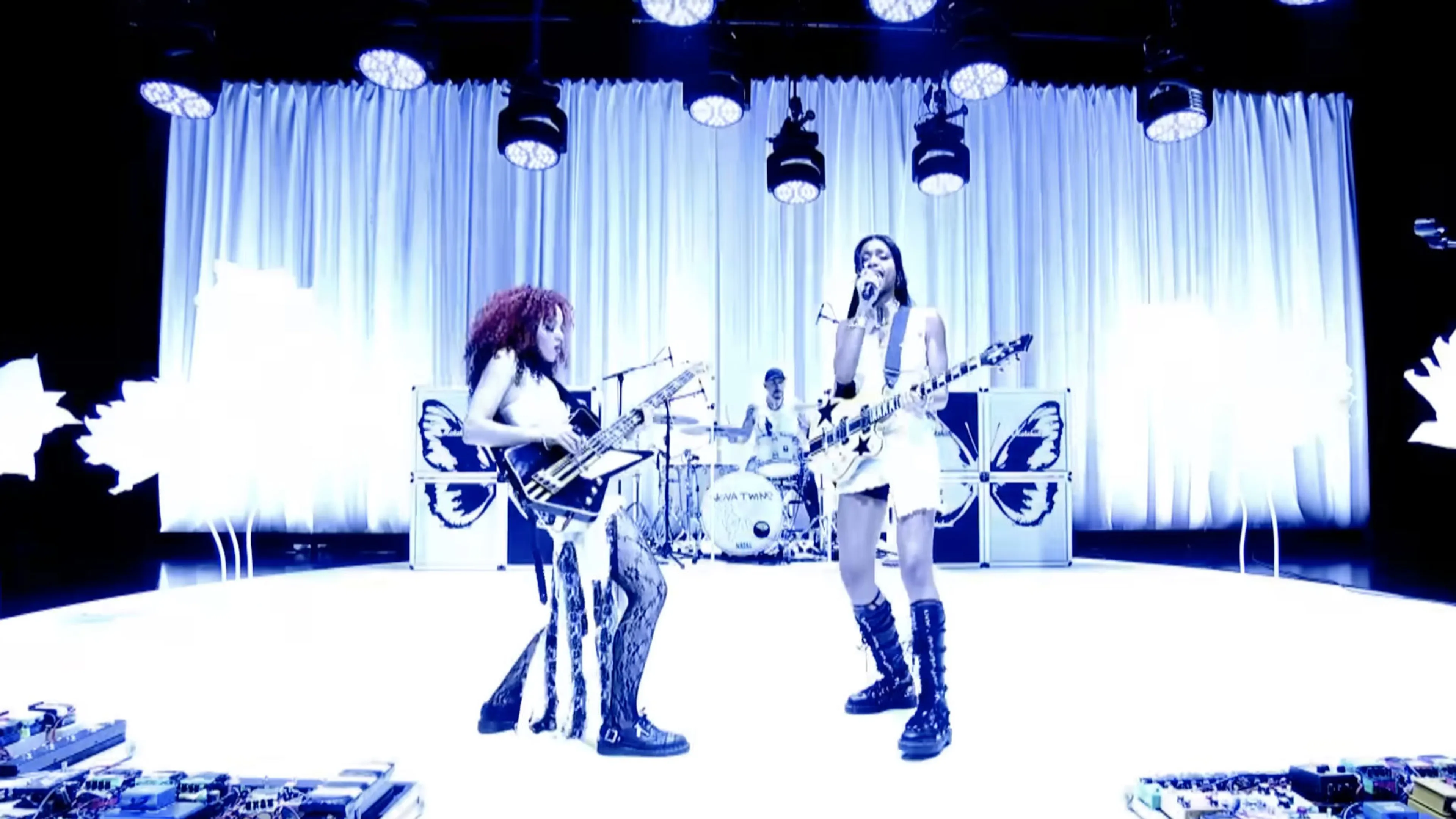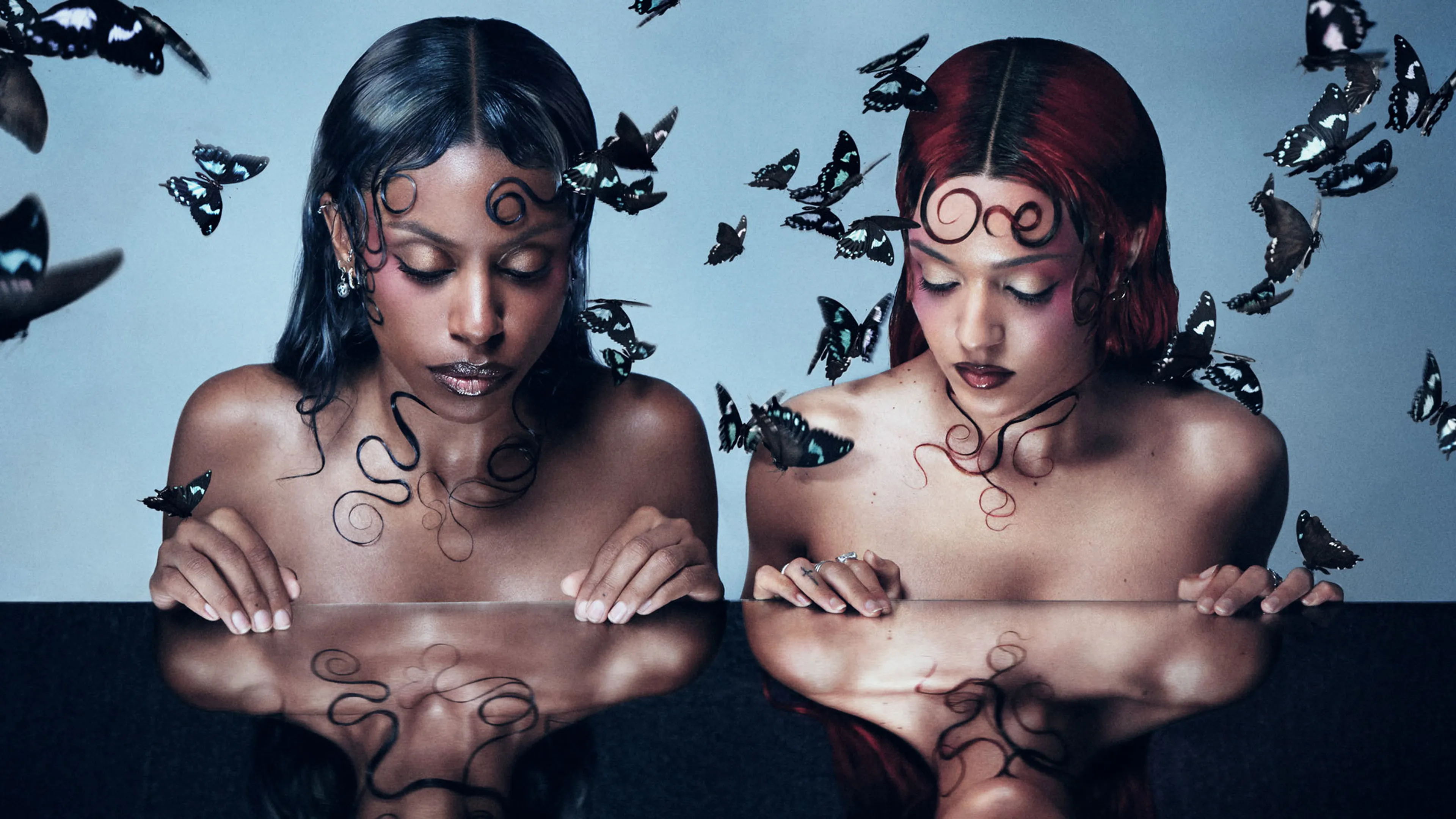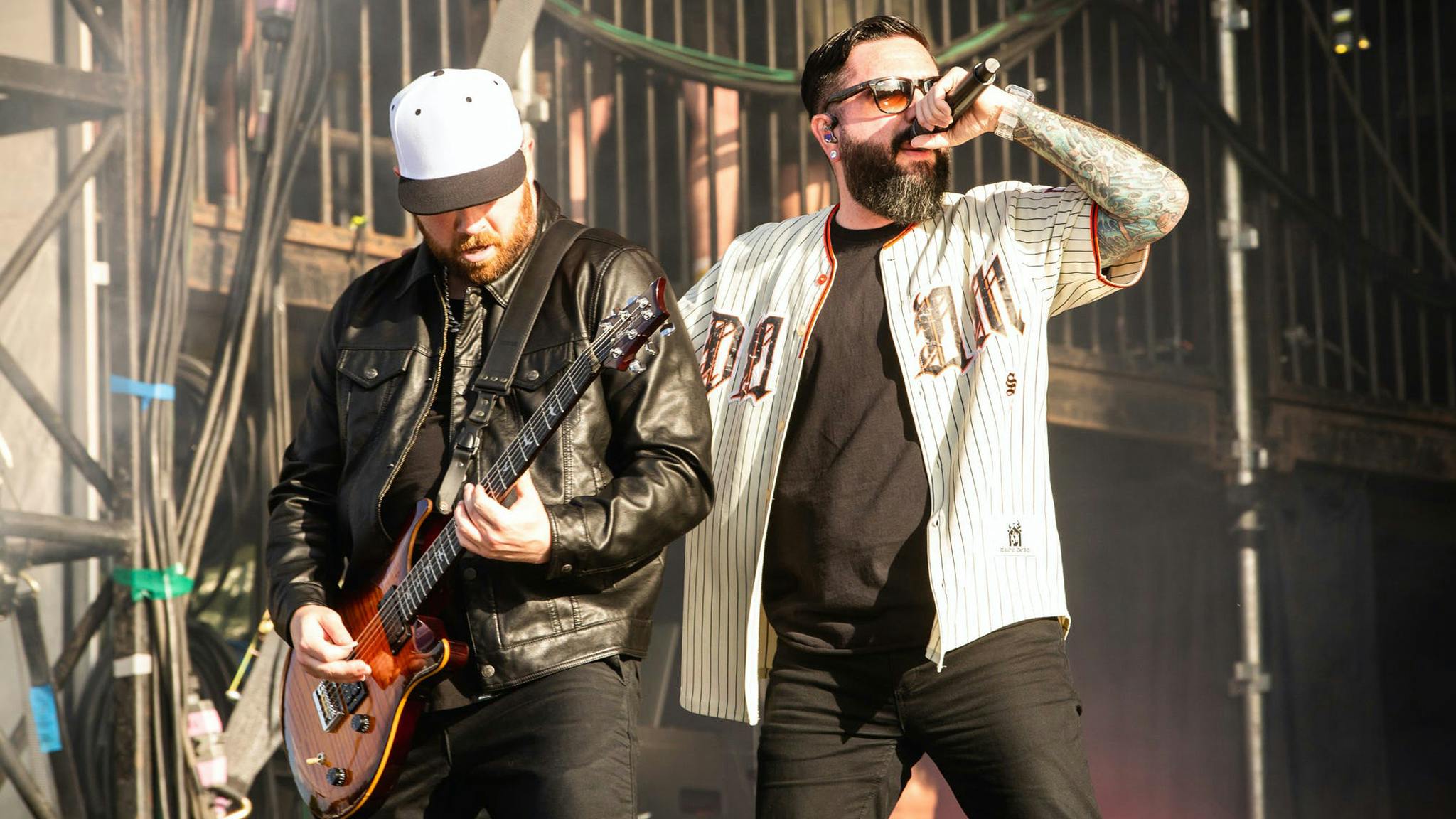These are pretty memorable times for Nova Twins and Witch Fever. The two bands not long ago each released killer albums (Supernova and Congregation, respectively), and last May saw Witch Fever opening for My Chemical Romance, marking their first-ever stadium performance, whilst Nova Twins have been infiltrating mainstream award ceremonies.
Both have worked their way up through a journey of struggle and authentic graft, to the point where they now stand as two solid pillars in the rock industry, not to mention uplifting fans who had previously felt overlooked.
To celebrate International Women’s Day 2023, Kerrang! joined Amy Love and Georgia South of Nova Twins, with Amy Walpole and Alex Thompson of Witch Fever, in conversation. On the road with up-and-coming band Uninvited, for a near-sold out tour, they clustered together backstage ahead of their show in Newcastle to discuss the battles and triumphs they’ve faced as women in music…
